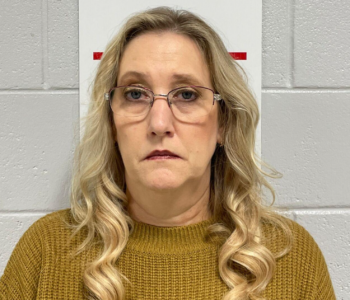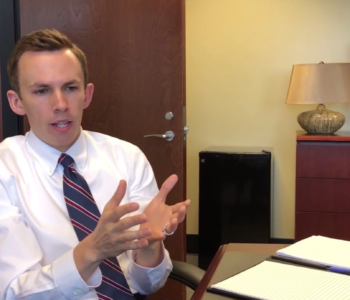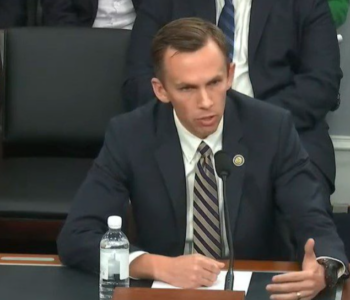 News
News
Legal battle begins over demand for Hattiesburg Tourism Commission’s…
The Hattiesburg Tourism Commission and some of its current and former members have filed a civil lawsuit hoping for relief from a nearly half-million dollar demand for payment by the state auditor’s office.
The lawsuit filed Tuesday in Hinds County Chancery Court names as defendants United States Liability Insurance Co., which has refused to pay the demand, and the auditor’s office.
State Auditor Shad White listed the commission and six of its commissioners in an audit exceptions report for 2018, saying the demand for $422,914.92 was never paid. The case has since been forwarded to Attorney General Jim Hood’s office.
A letter dated Nov. 17, 2016, signed by Jay Strait, acting director of the state auditor’s office, said the commission approved “unauthorized bonuses and retroactive payroll payments.” Those payments totaled $251,951.80. The letter also demands $6,474.66 for investigative costs and $164,488.46 in interest.
The money was never repaid to the state.
“The money was misappropriated by the Hattiesburg Tourism Commission and used to fund illegal back pay and bonuses for employees of the commission,” Logan Reeves, spokesman for the state auditor’s office, said in an email. “The Auditor’s office has transmitted the case to the Office of the Attorney General State of Mississippi to pursue recovery through litigation.”
The commission had authorized bonuses and retroactive pay raises to former director Rick Taylor and six former employees. Taylor alone received $217,763.05 between 2008 and 2013 that should not have been paid, according to the auditor’s office.
Matthew Steffey, a professor of law at the Mississippi College School of Law in Jackson, said one of the reasons the auditor’s office may be seeking restitution from the commission instead of the individual tourism commission employees who received the money could be because the commission was insured.
“Most of the time, the reasons are either personal, political or financial,” he said. “Maybe the demand was made against the insured parties so they can collect. Sometimes that’s the easiest way to get to the money.”
The Mississippi Constitution says no extra compensation may be made after services are rendered or contract made, so bonuses for past performance and retroactive pay is not legal in the state. The law only applies to government-funded work.
The commission, which included at various times Marshall Bell, Sandra Foster, Frank James III, Catherine Price, Chris Rowell, Bonnie Warren and the late James Ratliff, did not have legal representation during the years the alleged misappropriations took place, so they were not aware they were doing anything wrong, the lawsuit says.
“No intentional wrongdoing or criminal activity was claimed as to any of the plaintiffs,” the lawsuit says.
The retroactive pay increases were given according to the commission’s employee handbook, which gave an employee’s anniversary date as the date any raise would take effect.
Taylor’s bonuses were based on specific sales goals, so the amount could not be predicted ahead of meeting those goals, according to the lawsuit.
The annual one-time bonuses were “in fact part of the total compensation package for the executive director. As the job responsibilities grew, so did the compensation package offered each year,” the lawsuit says.
Steffey said the commission most likely believed Taylor deserved the bonus.
“Just because it’s unauthorized doesn’t mean it’s unearned,” he said.
The commission was covered by a United States Liability Insurance Co. policy for $1 million between May 2014 and May 2017 that would presumably protect the members from such occurrences, but the insurance company did not pay the claim, according to exhibits in the lawsuit.
The insurance company at first cooperated with the commission’s attempt to resolve the auditor’s demands, but later backed out. USLI eventually offered a settlement, but it was less than 6 percent of what the auditor’s office was seeking, the lawsuit says.
At one point the insurance company drafted a federal lawsuit against the commissioners, asking the court to grant the company relief from paying the claim, but it never filed it.
Since it became apparent the insurance company did not intend to pay the claim, the commission’s next step was to take legal action.
“We’ve taken the next steps to recover taxpayer dollars by filing a complaint against the insurance company in Hinds County Chancery Court today,“ Hattiesburg Tourism Commission Executive Director Marlo Dorsey said in an email Tuesday.
White was included in the lawsuit because his office is a claimant for any insurance monies paid and he would be bound by the court’s decision on the case.
The Mississippi attorney general’s office, which is investigating the commission’s alleged misappropriations of funds, also is representing White in the civil suit and would not comment on the case.
Campbell Wallace, an attorney for United States Liability Insurance Co., said in an Oct. 12, 2017, letter to Special Assistant Attorney General James Bobo, that the insurance company “has no coverage for the claim by the auditor against the commissioners of the Hattiesburg Tourism Commission.”
He cited one of insurance policy’s exclusions, which says the company shall not be liable if anyone covered by the policy gained from it.
According to court documents, the commission’s attorney, David Ott of Bryan Nelson PA, and Bobo met with Wallace to discuss the claim, but USLI refused to honor it.
Bobo, in a letter to Wallace dated July 3, said the insurance company should honor the claim.
“Because public funds were used to purchase coverage, the claim against USLI will be exhausted before any resort is made to surety coverage,” he wrote.
In addition, Bobo demands USLI “explain why it sold a policy and collected premiums to cover the errors and omissions of these individuals and then assert that the policy is void for violating public policy.”
Wallace’s response, if any, is not included with the lawsuit.
While the commissioners themselves did not receive any of the money, Taylor and the other former employees did, from 2008 to 2013. The practice was discontinued in 2014.
Taylor would not comment.
“Since I am not an employee of the Tourism Commission, I have no authority to speak on the Tourism Commission’s behalf or the individual current and former Commissioners,” he said in an emailed response.
Taylor had served as director of both commissions since 1993.
Dorsey was named director in October, after Taylor announced in June 2017 he was stepping down from the tourism commission to spend more time as conventions director.









